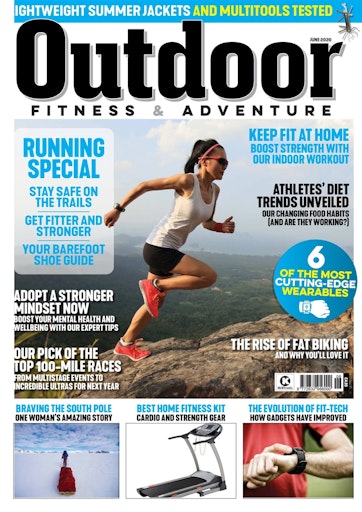Hiking is not typically classified as a competitive sport. It’s an outdoor recreational activity.
Exploring the great outdoors through hiking has become a favored pastime for many seeking fitness and adventure. Whether meandering through gentle hills or tackling rugged peaks, this activity appeals to a wide range of enthusiasts. Hiking promotes physical health, mental well-being, and a deep appreciation for nature’s beauty.
Its versatility means that diverse landscapes are waiting to be discovered, from dense forests to arid deserts. Key to hiking’s increasing popularity is the low barrier to entry; with minimal gear requirements, almost anyone can partake. Moreover, it’s an opportunity for social interaction or quiet reflection, adapting to the preferences of each hiker. Hiking epitomizes the blend of personal challenge and the simple joys of being in natural surroundings.

Credit: www.reviewjournal.com
Hiking Defined: Beyond A Simple Walk
Hiking stands as an activity which goes beyond strolling. It involves advanced planning, physical exertion, and often navigational skills. The terrain for a hike usually includes mountains, forests, or rugged trails, compared to a walk which is generally on a smooth, easy path. Hiking accessorizes with specialized gear like boots, backpacks, and maps to ensure safety and enhance the experience.
Hikes can vary greatly in difficulty. They range from short, local trails to multi-day expeditions that challenge even the fittest adventurers. The essence of hiking combines enjoyment of the outdoors, physical health, and sometimes an aspect of sport. Yet, it’s important to note that hiking is not competitive like traditional sports. The reward is personal achievement and connection with nature.
Exploring The Sports Classification
Sports often have clear rules, competitions, and require physical exertion. Hiking involves walking, which is a physical activity. It can be both recreational and competitive, like sports. It challenges the body and mind, similar to other sports.
Hiking includes navigating trails, which requires skill. This skill grows with experience, as seen in many sports. Some hikes are timed, turning them into races. This makes hiking similar to competitive sports events.
Physical Demands Of Hiking
Hiking challenges your body in many ways. Long trails require your muscles to work hard. This hard work makes you strong over time.
Your legs and heart get really strong because they keep working. Remember, taking breaks is key for long hikes. Always keep water with you to stay sharp.
Building your strength helps with tough spots on the trail. Think of pushing up a steep hill. Your legs and arms work like a team.
- Legs: They carry you over rocks and up hills.
- Arms: They balance you and help with climbing.
- Heart: It beats faster to keep you moving.
Competitive Spirit: Hiking Races And Events
Competitive hiking isn’t just a trek through nature but a test of endurance and speed. Many hikers push their limits in races set in the world’s most stunning trails. Engaging in these competitions requires serious preparation, both physically and mentally, often for months in advance.
Global hiking competitions draw enthusiasts from everywhere. These events range from friendly local meetups to high-stakes international contests. For example, the Appalachian Trail Race covers a distance of over 2,000 miles. Participants must navigate challenging terrains and variable weather conditions.
Training typically includes consistent physical routines, strategizing for optimal nutrition, and scouting course specifics. Enthusiasts must invest in quality hiking gear, tailored to the event’s unique demands.
Mental And Health Benefits Of Hiking
Hiking strengthens our minds and bodies. It’s like a secret superpower! Picture yourself walking in nature. Your legs are getting stronger with every step. Your heart is pumping happily. It’s great for your whole body!
Let’s chat about psychological resilience. This means your brain gets tough, like a superhero. Hiking helps you deal with tough times better. You learn to not give up easily. Your mind says, “I’ve got this!” even when things get hard.
Physical health benefits of hiking are huge! Your muscles get mighty and your bones get tough. And guess what? You don’t even need a gym membership! Hiking is like playing outside and getting fit at the same time. Say goodbye to feeling tired. Hiking boosts your energy big time!

Credit: pocketmags.com
Community And Culture Around Hiking
Hiking offers more than just trails; it fosters a strong global community. Enthusiasts worldwide organize to explore and celebrate nature. They share experiences, gear tips, and safety practices. Groups often gather for social hikes, where connections grow stronger with every step.
Cultural traditions thrive through hiking. Many societies have historic trails, where each path tells a story. Annual pilgrimages turn into festivals, merging hike with heritage.
| Region | Tradition | Event |
|---|---|---|
| Europe | Camino de Santiago | Religious Pilgrimage |
| Asia | Shikoku Pilgrimage | Spiritual Journey |
| America | Appalachian Trail | Thru-Hike Adventure |
Each event blends fitness with culture, shaping a unique identity for hikers everywhere.

Credit: www.denverpost.com
Frequently Asked Questions On Is Hiking A Sport
Is Hiking Considered A Competitive Sport?
Hiking is generally seen as a recreational activity rather than a competitive sport. It focuses on enjoying the natural environment and physical exercise but may have competitive elements in events like trail running or orienteering.
What Are The Health Benefits Of Hiking?
Hiking offers numerous health benefits, including improved cardiovascular fitness, stronger muscles, enhanced mental wellbeing, and weight management. It’s an effective way to exercise while connecting with nature.
Can Hiking Improve Mental Health?
Yes, hiking can significantly improve mental health by reducing stress, alleviating anxiety and depression, and boosting mood and overall sense of well-being, thanks to the therapeutic effects of nature.
How To Prepare For A Hiking Trip?
Preparing for a hiking trip involves selecting suitable gear, checking the weather forecast, planning your route, conditioning your body, and packing essentials like water, snacks, and a first aid kit.
Conclusion
To sum it up, hiking truly transcends simple categorization. It’s a pursuit that challenges the body, refreshes the mind, and uplifts the spirit. Whether viewed as a sport or a pastime, its benefits are undeniable. Embrace trails and peaks alike; after all, every step is towards a healthier, more fulfilling lifestyle.
Keep trekking and let the wonders of nature fuel your passion!

